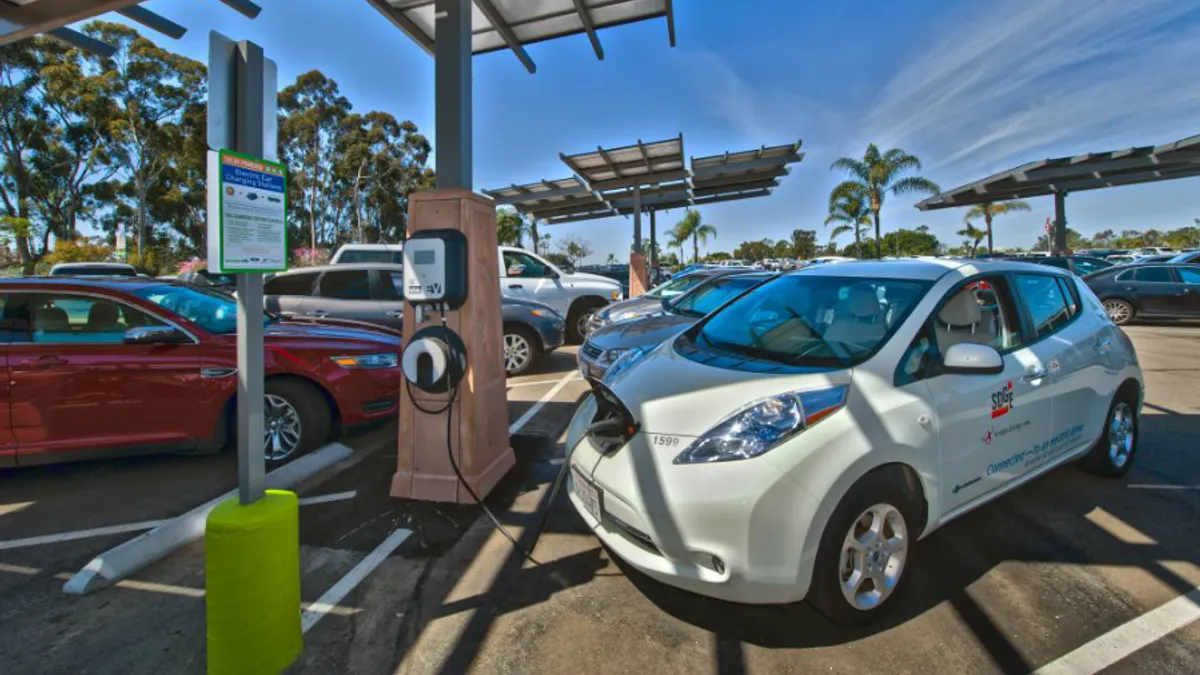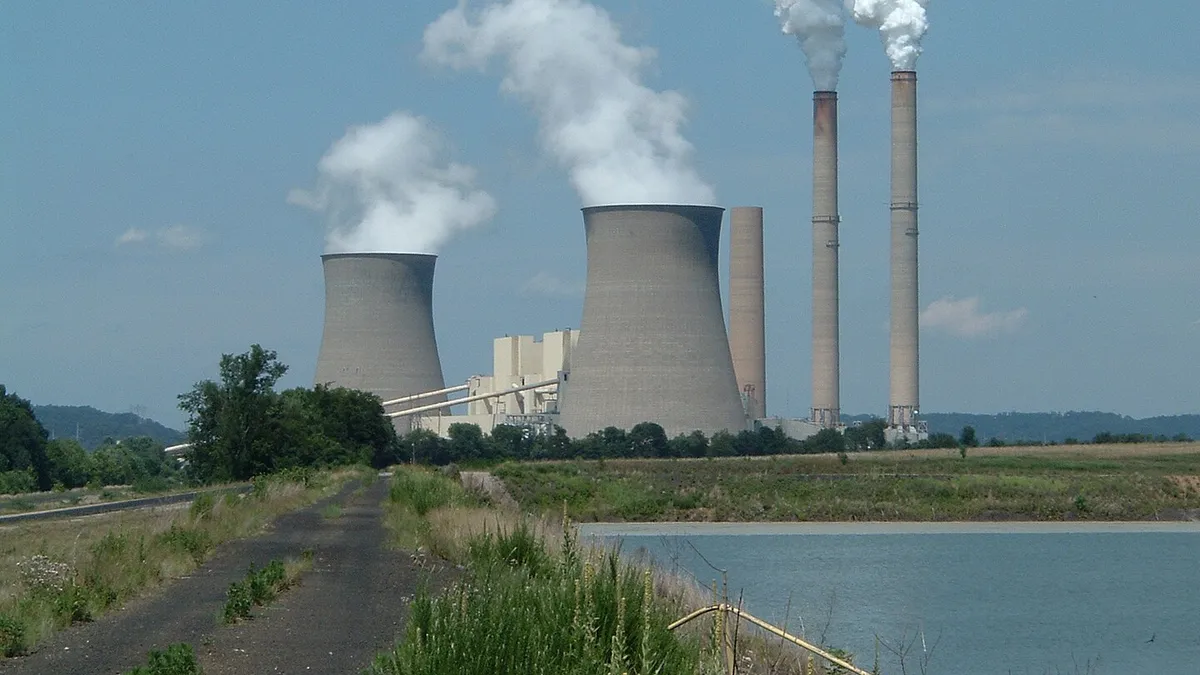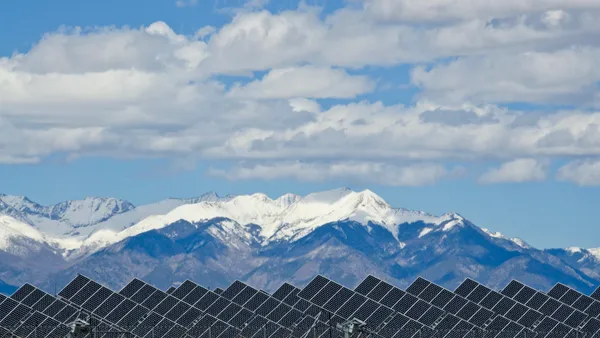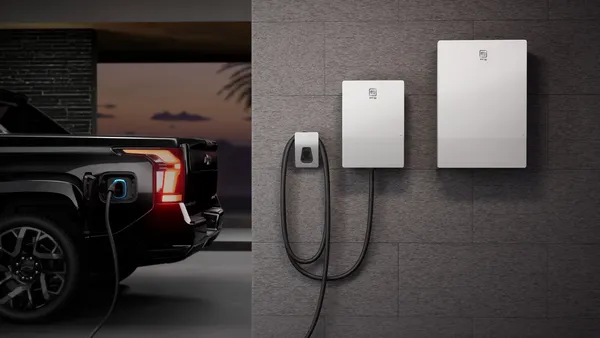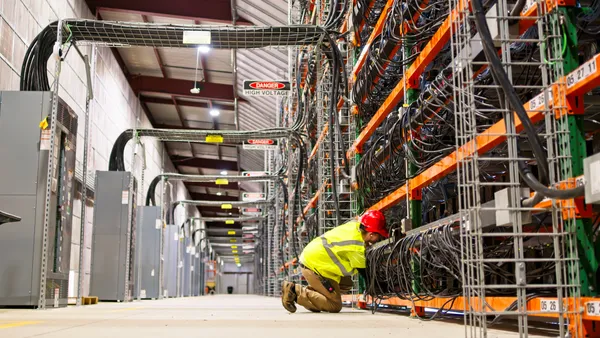Dive Brief:
-
Nissan has hinted it is planning on releasing a new version of its all electric Leaf electric vehicle for the U.S. market that will have some self driving capability and be equipped to provide grid support, Greentech Media reports.
-
Nissan added few details in making the announcement at the 2017 Consumer Electronics Show and did not say when the new version of its Leaf would be released.
- Nissan, like other automakers, has been working technology that would allow an EV to provide grid services by being able to perform two-way charging, known as vehicle-to-grid (V2G).
Dive Insight:
Just over a year ago, NRG Energy’s EV division, EVgo formed a partnership with the University of California, San Diego to use the school’s microgrid as a test ground for two-way charging.
Nissan may now be getting closer to a wider release of the technology. “We have to start adjusting how we charge electric vehicles,” Takao Asami, Nissan senior vice president, said at the Consumer Electronics Show.
In an interview he went on to tell GTM that if EVs reach a mass scale, would not be feasible for the electric grid to handle the additional load the way as a one-way transaction. But moving to two-way charging presents high technical hurdles. For instance it can shorten battery life and lead to voided warranties.
But the durability of batteries is improving and, as EVs become more widespread, only a small amount of energy would have to be withdrawn from any particular battery. And battery technology continues to improve, leading to longer life cycles.
“Before we had the concern about the degradation of the battery — that’s why we had to limit the amount of energy we could pull out of the vehicle,” he told GTM. “But year by year, this durability is being improved.”


